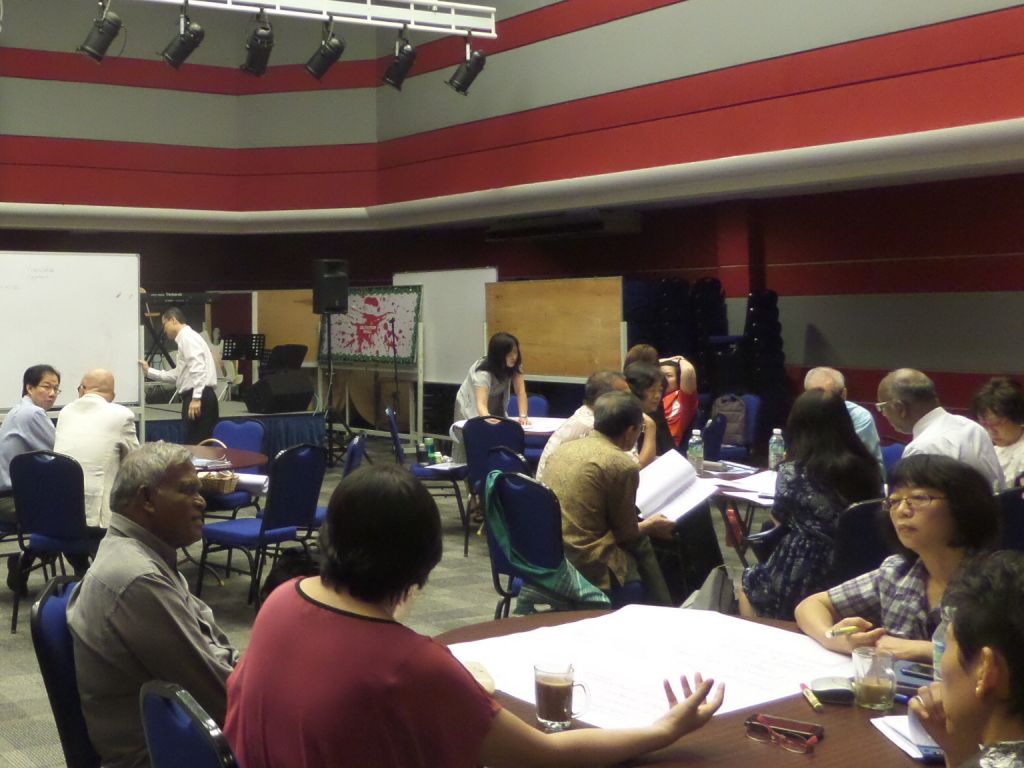
18 Mar 2015 by Jason Law CM –
At first glance, the business world and the Kingdom of God don’t seem to mix very well. They seem to be concerned with questions that are poles apart; one very much grounded in the issues of a concrete and physical world, while the other focuses primarily in the somewhat more incorporeal Spiritual world.
For myself, not having much experience in the business world, I would not even be able to differentiate strategic and tactical choices if you ask me to. Couple this with the immense amount of daily decisions that must be made by the business leaders in a cut throat and pragmatic world just to sustain their enterprise, and you can start to understand the singular challenges.
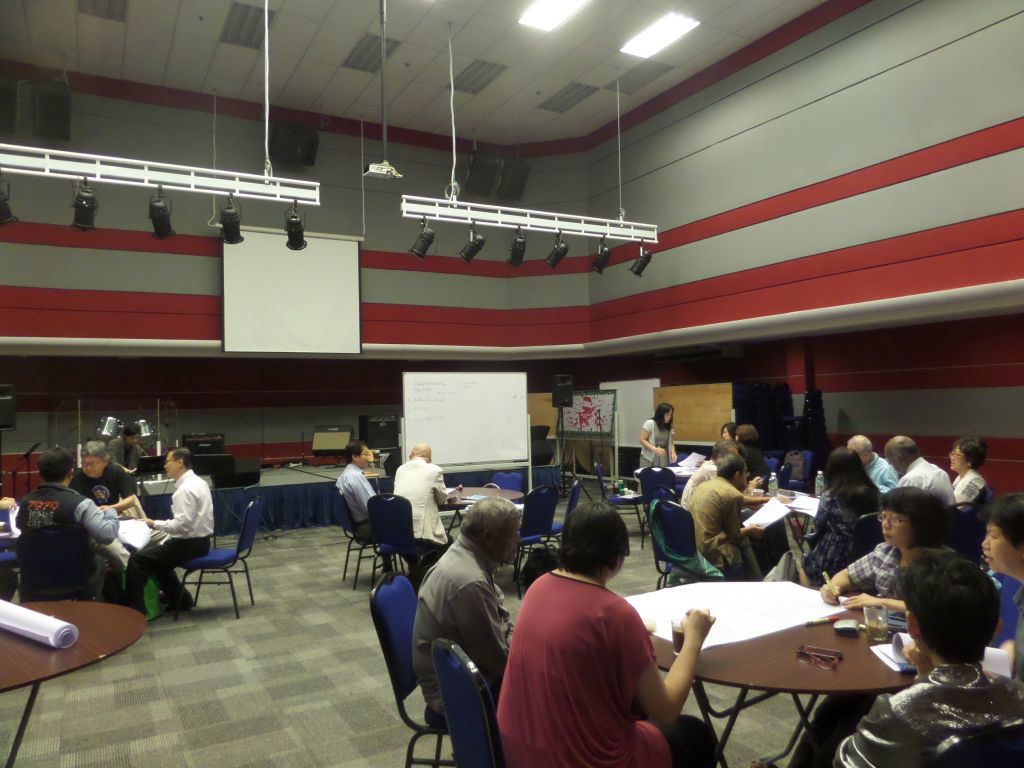
Is it even possible to integrate Kingdom values into today’s businesses in a practical manner? HISTEAM, no stranger to most Christians, believes so and last weekend, 12th-14th of March 2015, they organized a Kingdom Economy workshop to address this question.
HISTEAM’s workshop was a very intentional one, going beyond talking about Kingdom values, into actually applying them in a practical manner in real enterprises. Furthermore, the discussion did not just tackle the subject in an internal, isolative mode, but rather, these discussions were directed at how enterprises could be utilized to change whole societies for God’s glory.
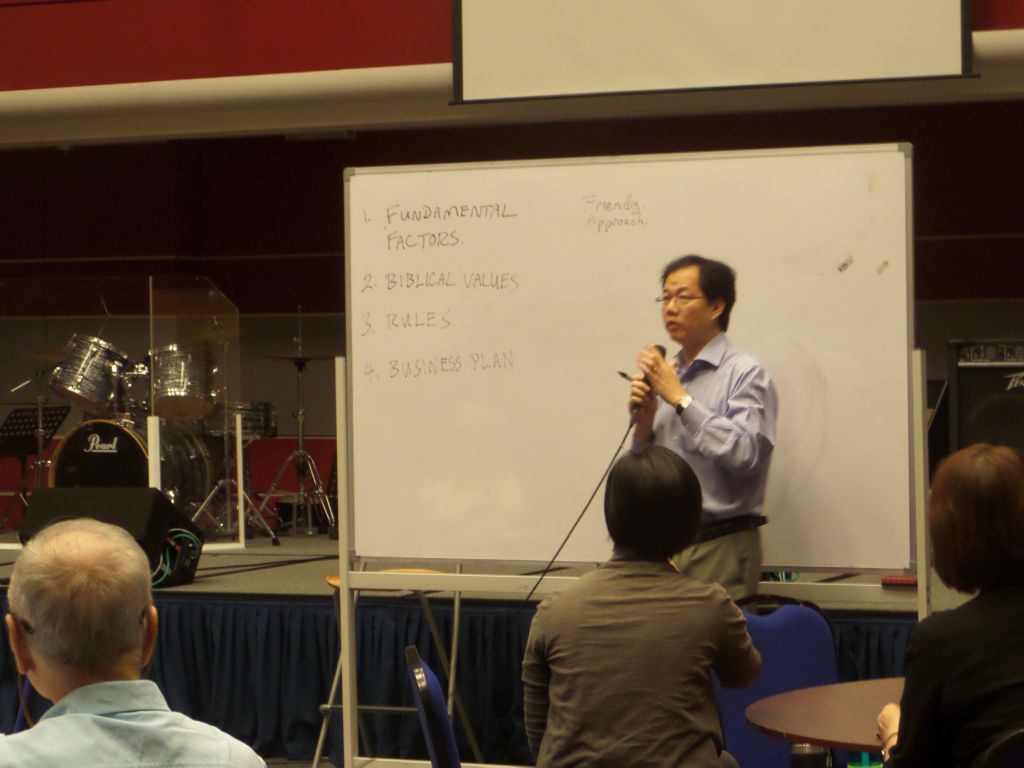
The central question was ‘Who are we business people if we are Christians (in other words, a follower a Christ)?’ The answer is simple and can be found in many of Jesus’ parables such as the Parable of the Talents, The Parable of the Goat and the Sheep, The Parable of the Unforgiving Debtor, and admittedly the more puzzling Parable of the Shrewd Manager.
Primarily, we are God’s stewards over whatever He has blessed us with, specifically stated in 1 Peter 4:10.
Each of you should use whatever gift you have received to serve others, as faithful stewards of God’s grace in its various forms.
This goes no less for the business people, and there is a clear indication of how seriously God views this, in the fact that one of the first things He did for the Israelites as they entered the Promised Land, was the establishment of Laws about the governance of land, servants, and debtors.
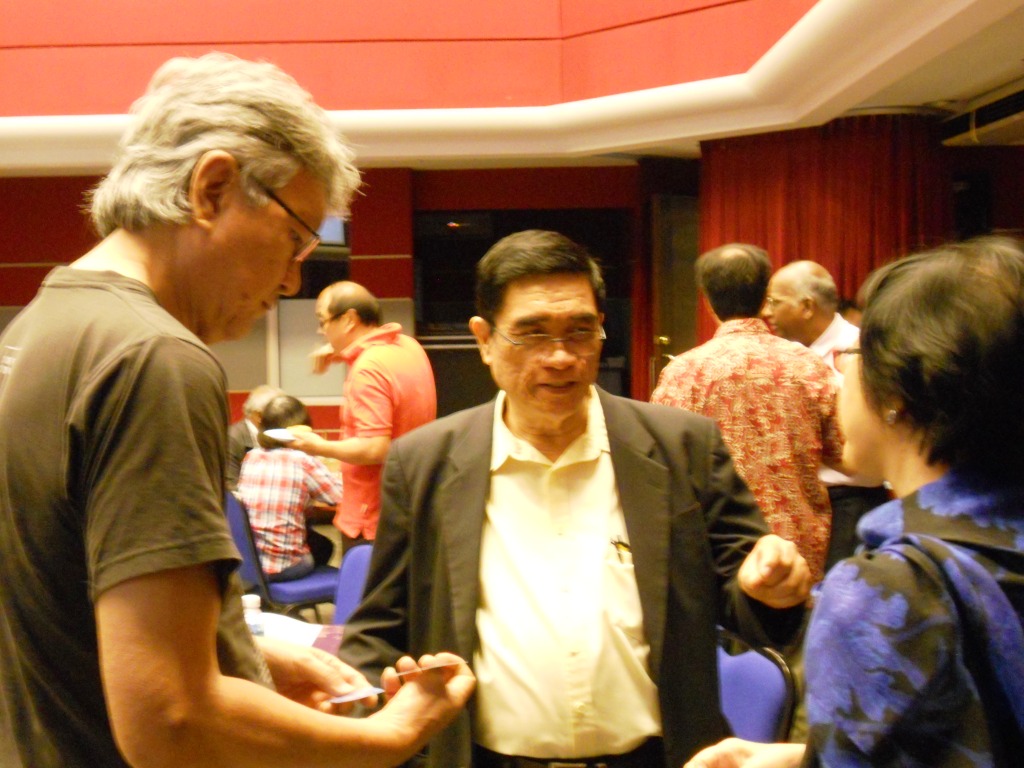
Dr Benjamin Quinone Jr, a distinguished economist and solidarity economics advocate, and the Founder and Chairman of Asian Solidarity Economy Council, shared his knowledge on the Biblical Basis of Kingdom Economy as a way of life, and the types of business models that we can implement today according to God’s principles.
On the first two days of the workshop, participants both Protestants and Catholics were trained, and discussed on how to cultivate a perspective that is based on 4 spectrums;
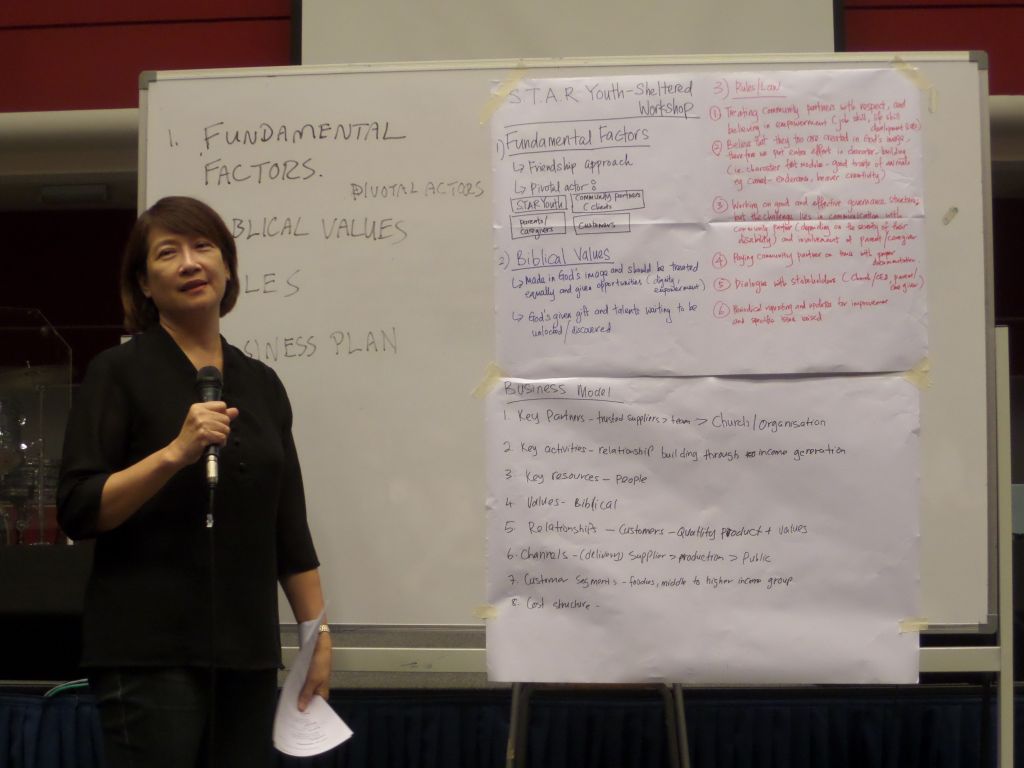
-
The Fundamental Factors for the enterprise such as organizational approach and pivotal actors. -
The Biblical Values that it is based on. -
The Godly Rules and Laws that governs it. -
Bringing it all together in a Business Model.
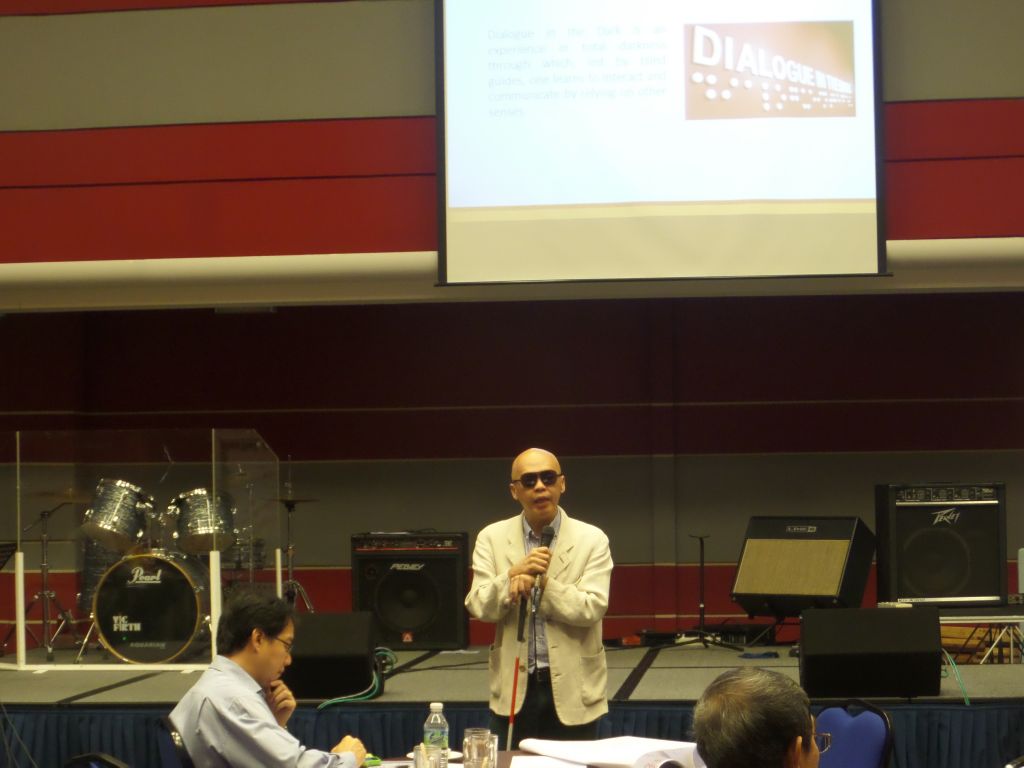
Brother Stevens Chan from the well-known Dialogue in the Dark Malaysia shared a case study of his experiences as its CEO and founder, and many other real-life case studies were presented.
Brother Kon Onn Sein, one of the facilitators of the workshop shared that the aggressive practices of the Neo Liberal business models and the Profit First business approach has left the world’s economy in a mess. For Christian business people, times of economic challenges are calls for them to change the spiritual climate.
This entails extending to society and bringing meaningful moral and spiritual changes, which will in turn alter the physical environment that people are living in. There are many feasible business models for Christians; Ethical Banking, Ethical Moral Business Model, Organic and Environmentally Conscious Organic Farming, Community Sustaining Model. The distribution of profits has to be equitable and it has to give back to society.
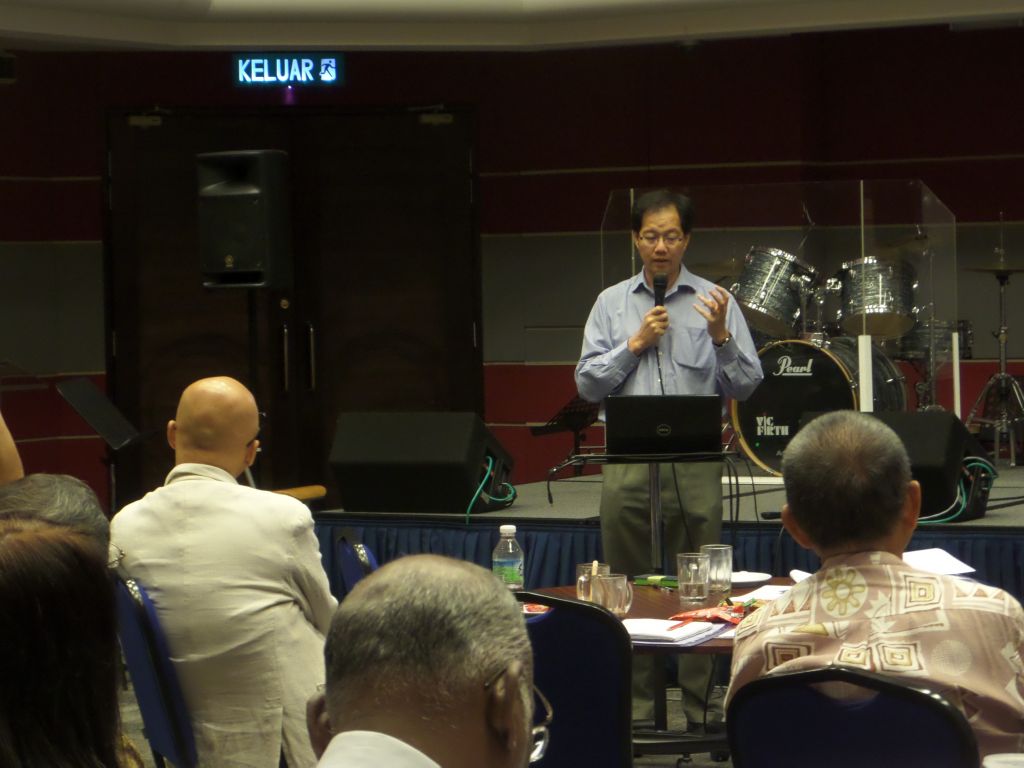
For a business people, this is where practical discipleship comes in. The key integrator for such initiatives must be a love and passion for people which would compel us to do good unto others. Having a God-focused perspective will help to develop intentionality, establishing Biblical values, for example treating marginalized people with dignity since we are able to recognize the image of God in the people around us. 5 helpful dimensions for Christian business people are governance, ethics, sustainable and not greedy profit, people-centered and an environmentally-friendly approach.
In one of the sharing, Brother Paul Sinnappan communicated a short message from his heart about Jesus’ ministry while He was on Earth. Just as Jesus had a heart of compassion for people, we need to ask ourselves who we want to serve. Brother Paul shared that the original Creation was perfect in every regard and it was full of dignity. We have the privilege to restore that dignity to God’s creation, not just in certain pockets of society but in everywhere we go; Jesus’ ministered to the rural people, but also to the urban poor. There are many target group people who are in need; the disabled, the displaced natives, abused women. The challenge is; are there more targets?
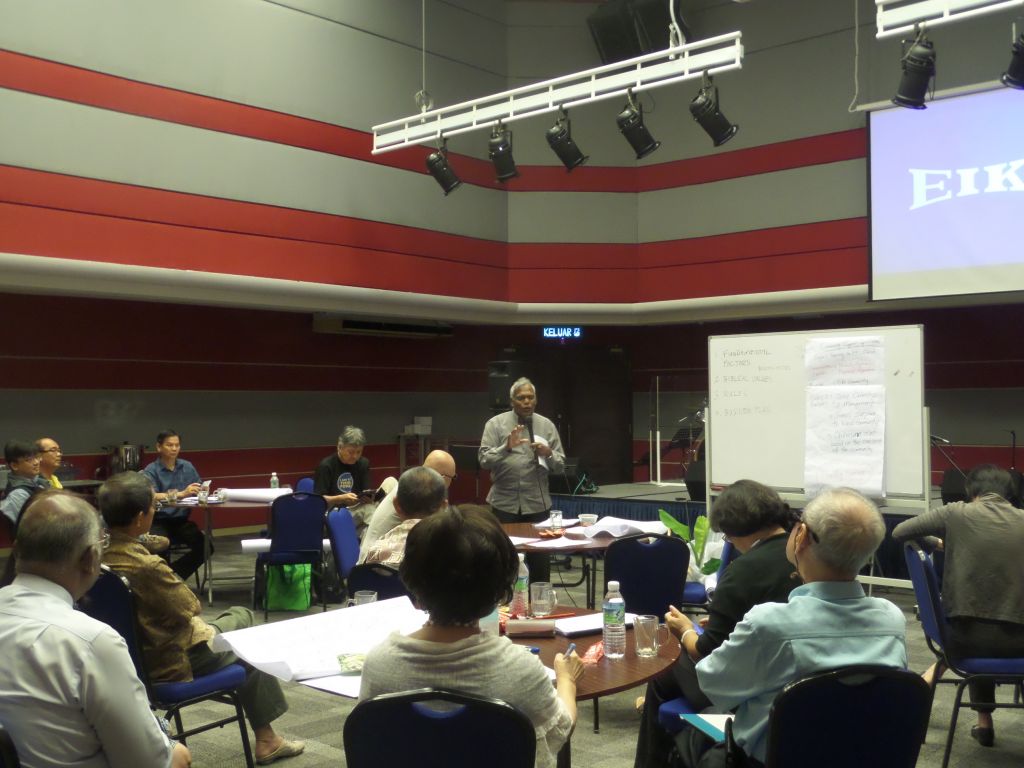
Three noteworthy things stood out about Jesus’ ministry. First of all, He went to the places where people are; Jesus came to their meeting point. He listened to people, He dialogued with them, He found out their needs. Brother Paul shared that learning to listen to people’s need and gaining an understanding of their environmental or cultural differences is very important. Our values must be founded in the Bible and focused on God’s principles. It’s not what we think is a great idea that will work, but giving people what they need such as training in skills that can be utilized.
The second noteworthy thing about Jesus’ ministry was that He worked with simple people. He created leaders from the community itself; He trained His disciples up in leadership and skills, turning fishermen into fishers of men. He gave these people the ability to see that everyone has something to give or transfer to others regardless of social background. The community that Christian enterprises are helping must be trained to own the project and some day manage it by themselves. Our roles are as facilitators towards this and one day we must be able to let go.

The third thing is that Jesus focused on empowering people. This often however, starts with us. We must be aware of who we are in our society and cultural background as a people of God. Awareness of our identities will help us towards genuine self-liberation which can extend to team-liberation. Such awareness forms characters and attitudes.
On the last day, Dr Benjamin gave a proposal on how we function as a team and the participants gave feedback for the programme. Reverend Andrew from HISTEAM explained that it is very crucial to invite like-minded readers to join their fellowship and partnership in the near future, and this mutual feedback system is also the whole purpose of organising the learning workshop.
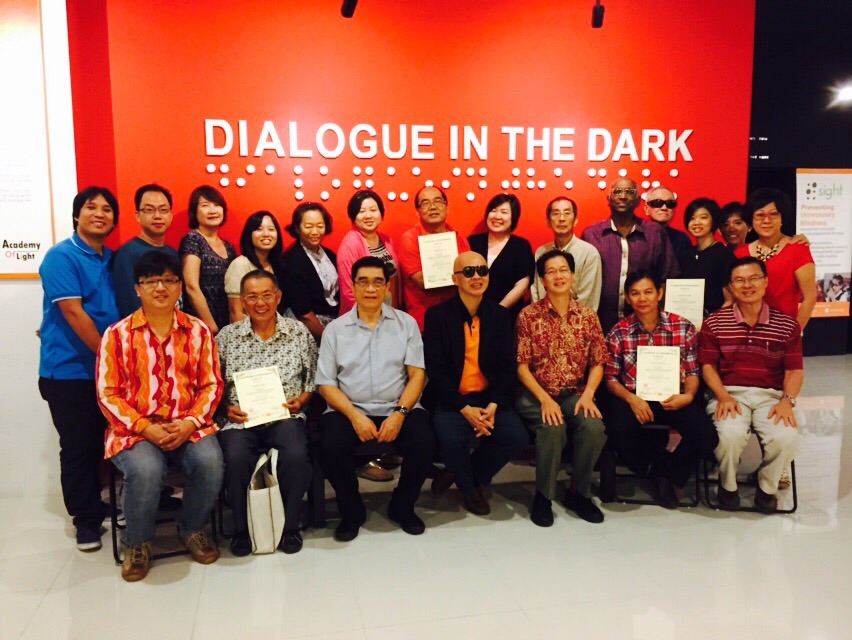
The participants were given the opportunities for a unique experience later the same day, at the Dialogue in the Dark exhibition at Jaya One including a Cuisine in the Dark, appreciating and understanding what our blind brothers and sisters go through daily. The central premise of remembering who we are as God’s stewards ran throughout the three-day workshop.
|Share The Good News|
NOTE: HISTEAM organizes monthly fellowship meetings at its office. Such a fellowship plays an important role in gathering like-minded market-place leaders to meet and discuss and explore networking opportunities. In April, HISTEAm is organizing a Social Economy exposure trip to Hong Kong, on April 17th-19th.
To find out more about HISTEAM and their programmes, you can visit their website at http://www.histeam.org.my/ or their Facebook page at /histeam.malaysia
NOTE: Some pictures kindly contributed by HISTEAM.



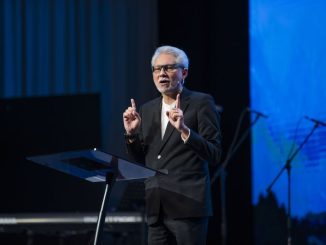
Leave a Reply